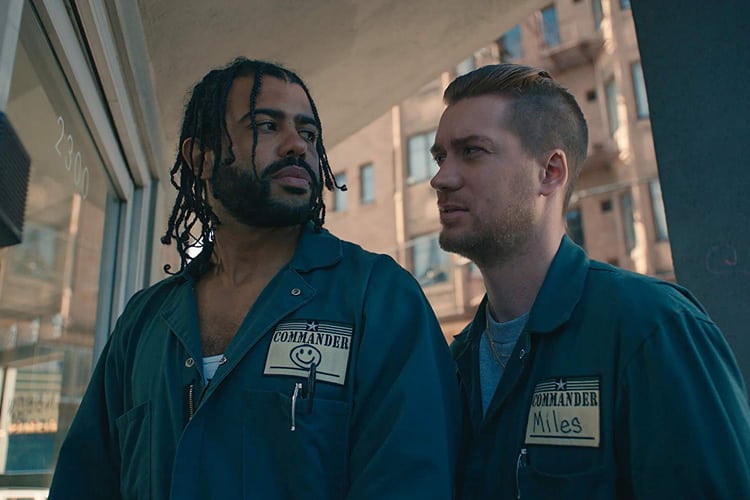All within the same month, the indie film scene has been blessed with two movies heavily inspired by Spike Lee and a new joint from Mr. Lee himself. The first film was “Sorry to Bother You” from first-time director Boots Riley, who echoed Lee’s synthesizing of satire and surrealism to examine racial exploitation in America. The third is the upcoming “BlackKklansman”, the latest provocation from Lee. Nestled in between them is “Blindspotting”, a musical comedy/drama—like Spike Lee’s masterwork “Chi-Raq”—from another first-time director of color, Mexican filmmaker Carlos López Estrada.
But that’s not who has the kids talking—if the ill-defined kids really are discussing indie films. No, that’d be the co-writer and co-star of “Blindspotting”, “Hamilton” heavyweight Daveed Diggs. The other half of those co-roles is his longtime friend Rafael Casal. They play Collin and Miles, best friends in Oakland who get by on moving boxes and selling used stuff while their city gentrifies around them. Collin’s situation is a little rougher, though, as he’s days away from finishing his probation and Miles’ lifestyle tends to attract legal trouble.
Everything escalates further when Collin sees a police officer shoot and kill an unarmed black man. At this point, “Blindspotting” has a bevy of social issues to explore, and an intriguing combination of genres through which to do so. How do all these first-time filmmakers fare?
Well, they’re clearly talented, but they don’t scream confidence. “Blindspotting” could be described as shy Spike Lee. Estrada and crew borrow Spike’s genre blends and periodic bursts of surrealism, but eschew his maximalism. Lee has seldom been a subtle filmmaker, but he blows his ideas to grandiose size with stylistic choices that augment his message and shout it in your face until the point becomes urgent again. “Blindspotting” tends to aim for something more grounded—but that doesn’t stick when the ground is shaky.
For example: Collin and Miles randomly break out into spoken word as they venture through Oakland. But the writers stay realistic about their musical flow, busting out incomplete rhymes so their verses don’t seem unfeasibly premeditated—which is about as awkward as, you know, two people workshopping half-finished lyrics to each other in public. In the rare moments that the film embraces unrealistic maximalism, it strikes gold: an unbroken spoken word in a dream sequence stands out, as does a captivating, fiery slew of verses near the end. In those scenes, “Blindspotting” matches its contemporaries with furious energy. The film is stronger when its rhymes are on the tip of its tongue.
And when its themes aren’t on its nose. “Blindspotting” is destined to be declared as deep by many young fans of Daveed Diggs, primarily because it touches on a number of social issues. It intermittently mentions race relations, gentrification, economic exploitation, cop-on-black violence, and then stamps these issues with obvious metaphors or short explanations while remaining surface level. It’s not deep so much as it is all encompassing.
A funny thing happens in the third act, though: “Blindspotting” adds something new to the conversation. It raises difficult questions about cultural appropriation by focusing on how the white Miles adopts ghetto culture. Miles was born and raised in the ghetto with Collin—do they share a right to the distinctly Afrocentric culture of Oakland? To the reclamation of slurs or targets of their pejorative use? How does this play into the racial profiling that circulates police systems? When the focus narrows in on these tricky subjects, everything becomes significantly more engrossing. One wonders what the movie could’ve been had Diggs and Casal dug further into fewer issues.
The amount of potential on display is exciting nonetheless, and the third act leaves behind a powerful aftertaste. If Estrada can rein in his choppy but lively direction—it suffuses Oakland with personality, but the screen often feels crowded—and the writers can continue to zero in on specific ideas, these budding filmmakers have a lyrically luscious future ahead of them.
★★★½ (3.5/5)




